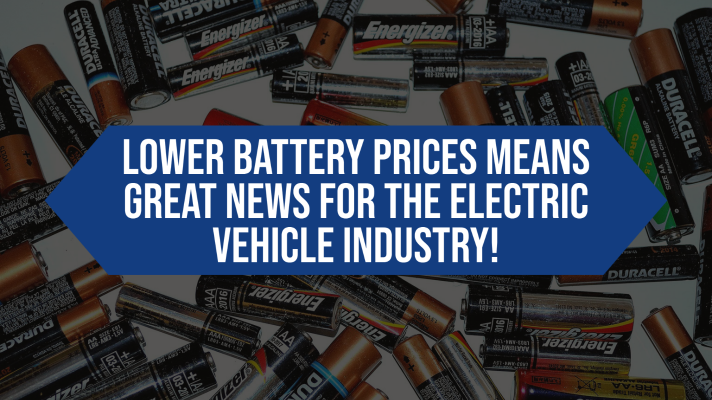Lower Battery Prices Means Great News For The Electric Vehicle Industry
Experts say that electric vehicles are close to the ‘tipping point’ of accelerated mass approval thanks to the collapsing prices of batteries. Global sales rose by 43% in 2020, and continued growth is expected. This growth is due to a prediction that battery prices will pursue their price drop, therefore, dipping the cost of electric vehicles below that of the equivalent of petrol and diesel models.
Unfortunately, transport is a dominant authority of carbon emissions, and electric vehicles are crucial towards fighting the climate crisis.
When comparing the direct emissions of electric vehicles to petrol and diesel vehicles, there is a clear winner. Electric cars produce zero direct emissions as they burn no fuel when they run. Plug-in hybrid vehicles are next in line, which have a combination of an electric motor and a gas engine. These vehicles only produce direct emissions when running on their gas tank.
Comparatively, petrol and diesel vehicles continually pump pollutants and greenhouse gases into the atmosphere. Emissions depend on the make and model of the vehicle, but generally, emissions fall at around 200g CO2 per km.
However, whilst electric vehicles already a great deal cheaper to run, their greater purchase price is an obstacle to piling uptake. Another significant issue is ‘range anxiety’ from consumers. Alas, production has begun to increase the batteries capabilities.
Lentons latest study showed in 2019, electric vehicles in Norway were 0.3% cheaper and had an impressive 48% market share. On the other hand, in the UK electric cars were 1.3% more expensive and the market share was only a small 1.6%.
Lenton predicts that lithium-ion battery costs will drop intensely ensuring electric vehicles will match the prices of petrol and diesel vehicles by 2024-2025.
A ballot of 3,000 UK drivers, showed the importance of prices, as only 9% of people said their next vehicle would be electric. Electric vehicles are quieter and have a fast acceleration time. Nonetheless, they are still considered too expensive compared to a conventional vehicle of the same size and quality. A poll of 2,000 electric vehicle owners, 91% said they would no longer return to petrol and diesel cars on a plus note. Melanie Shufflebotham stated;
‘The poll shows the strong and enduring impact of switching to a clean car. The evidence in favour of electric vehicles grows more compelling with each one of our surveys, even in a year as disruptive as 2020.’
Yet, one automotive trend is moving in the opposite direction, increasing sales in petrol thirsty SUVs. The international energy agency announced that despite 2020 COVID-19 lockdowns diminishing global emissions, pollution from SUVs expanded. However, as battery prices will dip in price, it suggests that even fuel-thirsty SUVs will turn electric in no time. The new and improved lithium-ion technology is creating cheaper and more energy-dense batteries set to make an appearance mid-decade.
Interested in going electric? Get the guide below…
Tags : Battery, battery prices, electric vehicle, electric vehicle battery, electric vehicle industry, EV, ev battery, ev industry, lower battery price, lower battery prices, lower prices

